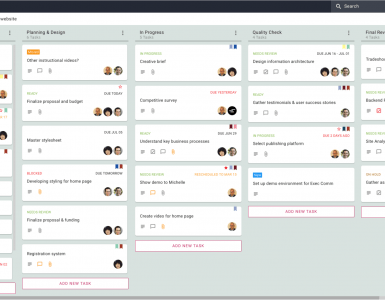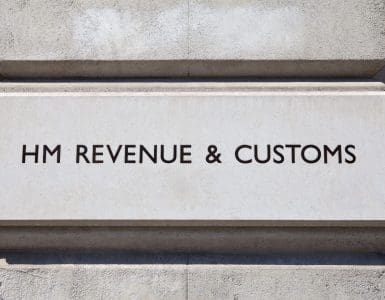There’s nothing that beats the feeling of putting the keys into the lock and opening the doors of your new home.
Getting on the property ladder is a big step forward in life so you need to make sure you’re taking advantage of all the opportunities out there.
But what if you’re a freelancer and banks won’t touch you because you don’t have full-time employment?
What if it’s going to take forever to save for a deposit?
What if you’re not in a position to buy a house right now?
You don’t need to worry. Being a freelancer doesn’t mean that you have to wave goodbye to getting a mortgage. We’ve partnered with CMME to help you who are experts in providing mortgages for freelancers, so we can help you realize your freelance goals for 2018.
You might be thinking:
Really? If that’s the case then what can I do to help me get on the property ladder?
Here are several schemes you should know about that can help you to get on the property ladder.
Help to Buy ISA
A Help to Buy ISA or Individual Savings Account is for first-time buyers looking to move into a new build house up to a maximum value of £600,000.
The government launched it in 2015 and means that they help you to boost your savings by 25%, up to £3000 (i.e. you save £12,000 and they will top it up with £3,000 to give a total of £15,000).
That’s right, they pay you 25% of every pound you save, so you can supercharge your savings and don’t have to penny pinch forever to get the deposit together.
Amazing, right?!
The ISA allows you to save up to £200 a month, as well being able to deposit a lump sum of up to £1,200 in your first month.
The Help to Buy ISA is available for new savers until 30th November 2019, however you can still keep saving in your account if you opened it before then. You have to claim your bonus by the 1st December 2030.
Who’s eligible?
To qualify for the Help to Buy ISA, you need to be:
- Over the age of 16
- Have a National Insurance number
- Be a UK resident
- A first time buyer
- Not have another active cash ISA for the same tax year
The property that you invest in must be based in the UK and:
- Cost up to £250,000 (or up to £450,000 in London)
- Be the only home you own
- Be where you intend on living
- Be purchased with a mortgage.
You can use this scheme alongside other schemes including the Equity Loan and Mortgage Guarantee.

Shared Ownership
If you’re not in a position to get a deposit together and buy a house outright then don’t worry.
There’s another option, shared ownership.
Shared Ownership schemes allow you to buy a share of your property and pay rent on the remaining percentage.
The scheme usually offers a purchase option of between 25 – 75% of the property to begin with, with options to purchase more in the future This is known as ‘stair casing.
Be careful because each county in the UK has its own Shared Ownership scheme and they operate in different ways.
Also, although you own only a share of the property you still have to pay all of the maintenance costs.

Who is eligible?
To qualify for the shared ownership scheme, you need to:
- Be earning £80,000 a year between you and your partner or less outside London (£90,000 a year or less in London),
- If you are a first-time buyer, you used to own a home but can’t afford to buy one now or are an existing shared owner looking to move.
If you’re over 55, then you’ll need to apply for the ‘Older People’s Shared Ownership‘ scheme. This is similar to the regular Shared Ownership scheme, but it only lets you buy up to 75% of the property. Once you own that 75%, you won’t have to pay rent on the remaining share.
Are there any restrictions?
- You can’t use these Help to Buy schemes to buy second homes with, or get them as a Buy to Let.
- They also cannot be used for anyone who is already using, or going to be using another home buying scheme. However, you can use the Help to Buy: ISA alongside the Equity Loan OR Mortgage Guarantee schemes.
Are there any risks you need to be aware of as a freelancer?
A lot of new home builders that offer houses that are under the ‘Help to Buy’ scheme try to persuade buyers to use their own approved brokers, rather than seeking specialist advice.
This can be disastrous for freelancers, because non-specialist mortgage brokers may have doubts about whether you’ll be able to borrow sufficient funds to proceed with the sale.
As a result, your income could be assessed via trading accounts or payslips, meaning that a large portion of your income could be ignored.
This is why it’s really important that you work with a mortgage provider that specializes in providing mortgages for freelancers or contractors to avoid any nasty surprises like this.
How CMME can help
CMME is dedicated to supporting Britain’s freelance community – ambitious, enterprising people like you who’ve backed themselves to make their own way in life.
They are specialists in made-to-measure mortgages for freelance professionals so will make sure they find the right lending partner for you, negotiate hard on your behalf, and cut a deal that works.
To find out how you can take advantage of these schemes click here or call CMME on 01489 555080
Twine is not authorized to offer regulated mortgage advice. Twine are introducers to CMME.








